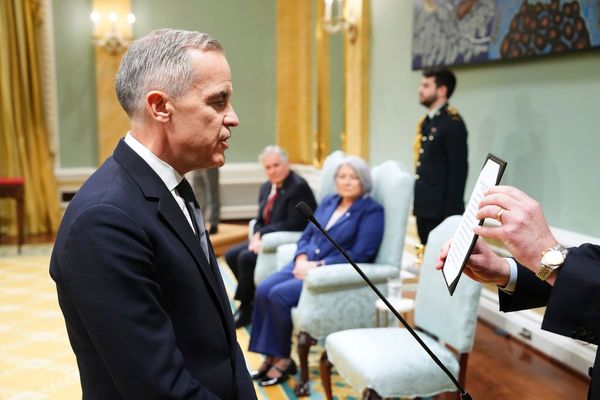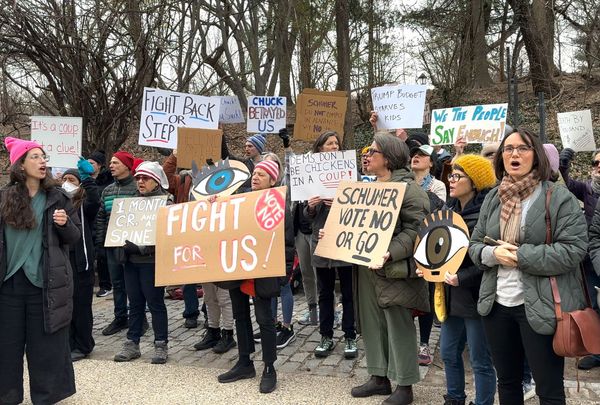
Kyiv (Ukraine) (AFP) - International Atomic Energy Agency chief Rafael Grossi said on Monday he was en route to inspect Ukraine's Zaporizhzhia nuclear plant, as Kyiv's forces launched a counter-offensive to retake the Russian-occupied southern region of Kherson.
The coastal region of Kherson and its capital city of the same name have been contested by Russian troops since the war broke out six months ago.
"Today there was a powerful artillery attack on enemy positions in...the occupied Kherson region," local government official Sergey Khlan told Ukraine's Pryamyi TV channel.
"This is what we have been waiting for since the spring -- it is the beginning of the de-occupation of Kherson region."
Russia's defence ministry said it had repulsed attacks in the Kherson and Mykolaiv regions and inflicted "heavy losses" on Ukrainian forces.
Kherson city lies some 200 kilometres (125 miles) southwest of the Zaporizhzhia nuclear plant -- Europe's largest atomic facility -- which has also been occupied by Russian troops since early March.
The plant was targeted over the weekend by fresh shelling, its operator said, with Moscow and Kyiv trading blame for attacks around the complex of six nuclear reactors in Energodar, a town on the banks of the Dnipro River.
Ukraine's nuclear agency Energoatom has warned of the risk of a radiation leak.
Russian troops "continued to fire at Energodar and the Zaporizhzhia nuclear power plant" on Sunday, injuring 10, among them four plant workers, it said in an update early on Monday.
As of 10:00 am (0700 GMT), the plant was operating "with the risk of violating radiation and fire safety standards".
Russia's defence ministry accused Ukrainian troops of shelling near the plant on Sunday, claiming it had shot down a "Ukrainian strike drone" approaching a nuclear fuel and radioactive waste storage area.
Kremlin spokesman Dmitry Peskov urged the international community "to put pressure on the Ukrainian side so it stops endangering the European continent by shelling".
Peskov said Russia saw the IAEA visit as "necessary" and had been "waiting for this mission for a long time", insisting it would ensure its safety in the face of "constant" risks.
'Radiation blackmail'
Ukrainian President Volodymyr Zelensky on Monday called for sanctions against Russia's state nuclear energy agency Rosatom over the occupation of the plant.
"It's not normal that there are no sanctions against Rosatom for its radiation blackmail at the Zaporizhzhia nuclear plant," he said.
"The Russians are the only terrorists in the world that have managed to turn a nuclear plant into a battlefield."
The UN's nuclear watchdog has for months been asking to visit the site, warning of "the very real risk of a nuclear disaster".
Writing on Twitter, Grossi on Monday said an IAEA support and assistance mission was "now on its way" with the team due to arrive "later this week".
The United Nations has called for an end to all military activity in the area surrounding the complex.
Ukraine initially feared an IAEA visit would legitimise the Russian occupation of the site before finally supporting the idea of a mission.
In its Monday update, Energoatom said the Russians had "increased pressure on the personnel of the plant to prevent them from disclosing (to the IAEA) evidence of the occupiers' crimes at the plant and its use as a military base".
The G7 industrial powers on Monday demanded free access for the IAEA team to "engage directly, and without interference, with the Ukrainian personnel responsible for operating these facilities".
Ukraine was the site of the world's worst nuclear catastrophe in 1986, when a reactor at the northern Chernobyl plant exploded and spewed radiation into the atmosphere.
Experts say any leak at Zaporizhzhia would more likely be on the scale of the 2011 Fukushima disaster in Japan.
Energoatom on Monday warned any leak would scatter radiation over swathes of southern Ukraine and southwestern regions of Russia.
The United States on Monday urged a complete shutdown of the plant and renewed calls for a demilitarised zone around the facility.
Kherson official assassinated
Russian investigators reported that a former pro-Zelensky Ukrainian lawmaker who had joined the local Moscow-backed administration in Kherson had been shot dead at his home on Sunday.
Alexei Kovalev, "the deputy head of the military and civil administration in the Kherson region was killed by bullets," the investigators said on Telegram.
With tensions high around the plant, Ukraine's rescue services have been holding training sessions on managing the risk of nuclear accidents.
Schools in Zaporizhzhia city began distributing iodine pills to reduce medical risk of radiation in the event of a disaster, with some 200 people turning up to collect them on Friday when distribution began, an AFP correspondent said.
"The tablet is taken in case of danger, when the alarm is raised," said Elena Karpenko, a nurse at the Zaporizhzhia Children's Hospital.
burs-hmw/imm/jj







